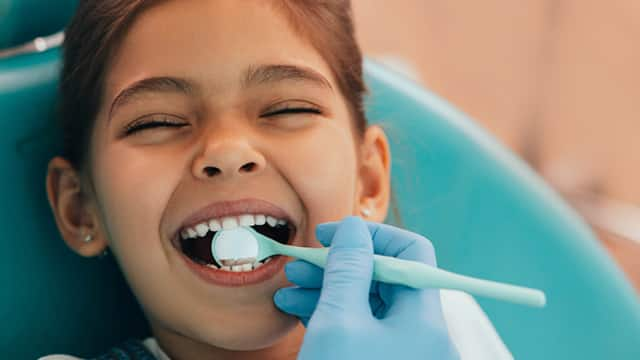Foods to Eat With Braces
Braces have brackets and wires – places and things for food to get caught up in. If you're not careful, this can lead to broken wires or decay. It's important to be knowledgeable about foods and how they'll affect your braces. On a positive note, you’re not that limited on what you can eat, but there are some things to consider.
Here’s a list of foods you can eat with braces:
- Bread, most types of bread are fine but avoid bread with nuts. Also, if you’re eating bagels or bread with a hard or chewy crust, it’s wise to cut it into smaller bites
- Dairy, this includes cheese, milk, and yogurt
- Grains such as rice, pasta, and oatmeal
- Protein including eggs, chicken, beef, tofu, fish, and pork
- Vegetables and fruits, when eating apples or carrots or other hard fruits or vegetables, it’s important to cook or cut raw ones into slices or smaller bites
After you first get your braces on and with each orthodontia visit, your mouth will probably be sore. You can still eat the foods you enjoy, but make sure that they are small bites and soft to avoid pain or damage to your braces.
Eating With Braces: Foods to Avoid
Braces are intricate but strong. They consist of small brackets cemented to each tooth and connected by wire and create pressure to realign your teeth. There are some foods that braces don’t get along with because they get stuck in the braces and can even bend the wires. Here are some foods (some in certain forms) that you and your braces should avoid:
- Popcorn (because of the kernels)
- Nuts
- Tortilla chips
- Taffy, caramel, and other types of sticky candy
It is best if you avoid eating corn on the cob (better to take the kernels off with a utensil before eating) and don’t bite directly into an apple (pre-slice instead). Additionally, you shouldn’t eat too many sugary foods or drinks. Sugar leads to plaque build-up on your braces, causing decay. Also, chewing gum isn’t recommended and can be challenging with braces on the teeth.
Other Factors for Keeping Your Teeth and Braces Healthy
Caring for your teeth while you have braces will take some extra attention.
For example, there’s a special way to brush and floss (also referred to as interdental cleaning). Brush the gumline at a 45-degree angle to start and then angle down from the top of the bracket while you brush. Repeat the process from the bottom of the bracket while angling up. You will need to use a threader when you floss.
You can have braces and still eat many of the foods you enjoy. You may not have to give something up; you may just need to change the way you eat it. There are a few exceptions to this rule. Practice good oral care at home and keep up with your dental and orthodontist appointments. Your braces and your future smile, thank you.
Oral Care Center articles are reviewed by an oral health medical professional. This information is for educational purposes only. This content is not intended to be a substitute for professional medical advice, diagnosis or treatment. Always seek the advice of your dentist, physician or other qualified healthcare provider.
ORAL HEALTH QUIZ
What's behind your smile?
Take our Oral Health assessment to get the most from your oral care routine
ORAL HEALTH QUIZ
What's behind your smile?
Take our Oral Health assessment to get the most from your oral care routine















